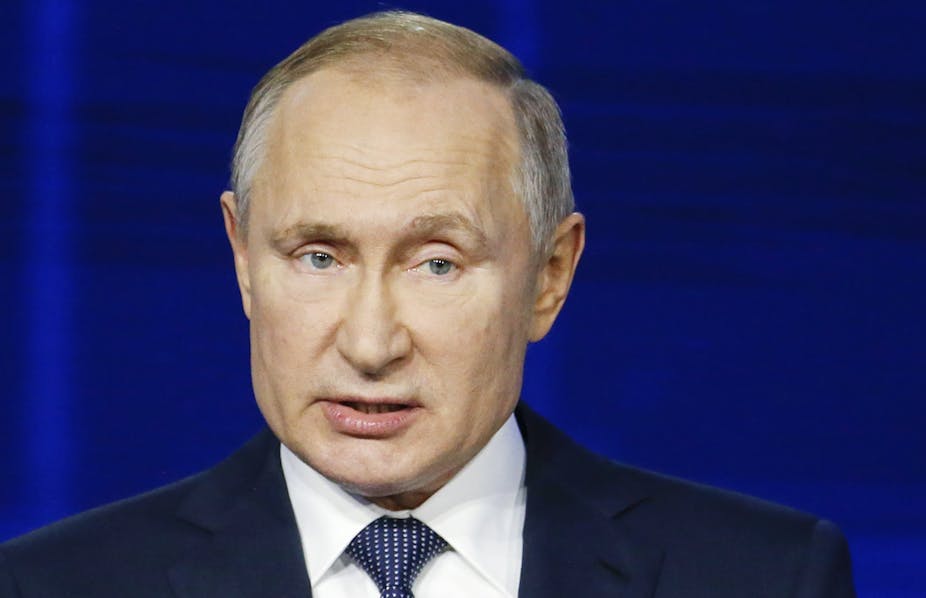The UK election comes against the background of one of the worst periods in Russian-British relations since the end of the Cold War. Badly shaken by the 2006 poisoning of the former Russian spy Alexander Litvinenko in London, relations spiralled further down in the aftermath of Russia’s annexation of Crimea in 2014. The poisoning of another former spy, Sergei Skripal, in March 2018 in Salisbury then killed off any hopes of a recovery in bilateral relations.
Throw in the British government’s failure to publish an intelligence report by MPs on Russia’s alleged involvement in British politics before the election, and the poll is shaping up to be a pivotal moment for Russia’s relations with the UK.
But what result does Russia want from the 2019 elections, and why?
I have researched Russia and its relations with the wider world, and the Russian government sees the UK as one of the more hawkish of EU states on Russia. The UK has been a strong supporter of tough sanctions on Russia for its behaviour in Ukraine, and it opposed Moscow’s involvement in Syria.
In 2018, the UK led the largest ever expulsion of Russian diplomats by Western countries, much to the ire of the Kremlin. Moscow’s foreign minister, Sergei Lavrov, even complained in 2018 that: “The country, which is leaving the European Union, is determining the EU policy on Russia.”
The UK is often allied with the so-called “anti-Russian fringe” of former Soviet bloc states. Chief among these are Poland and the three Baltic states, Estonia, Latvia and Lithuania, which are seen in Moscow, in Lavrov’s words, as the: “Main activists in NATO and the European Union, which are going all out to impose unbridled Russophobia.”
Read more: 2019 election polls: how to understand a confusing picture in the last days of the campaign
This Russian suspicion of Britain is reinforced by its “special relationship” with the US, with the British hardline stance towards Russia often perceived by Moscow as a proxy for American views in the EU.
Add to this London’s status as a safe haven for Putin’s critics fleeing Russia, who are in their turn targeted by the Russian security forces, to see why UK-Russian relations are in a “deep freeze”.
It’s all about EU
Although Russian diplomats and officials are always careful to stress that Brexit is an internal matter for the UK, the logic of international relations as seen from Moscow shows that a loss of British influence over the EU will be beneficial to Russia. In that sense, a victory for the Conservative party, which is committed to removing Britain from the EU, should be welcomed by Russia.
Removing Britain from the EU kills two birds with one stone for Russia. It diminishes the UK’s influence in Russia’s largest neighbour and trading partner, and through it reduces US influence. Without Britain, the EU will be less powerful, too. Pitching the EU and the US against each in their approaches to Russia, especially over economic sanctions, has long been a target of Russian foreign policy.
Russia might even use its membership of the World Trade Organization as leverage over the UK, particularly if British negotiators fail to reach a deal on their future relationship with the EU by the end of the agreed transition period. The Russians have good, detailed knowledge of difficulties involved in Brexit, including how many British cows cross the Irish border for milking every day.
Russia’s dislike of the EU has two strands. One is a practical realpolitik calculation. Russia has always been more comfortable dealing with individual states, than with an organisation like the EU. The other level is ideological. Russia has long been a champion of nationalist right-wing political forces across Europe, from Marie Le Pen’s National Rally in France to Matteo Salvini’s The League in Italy. In the UK, key pro-Brexit donor Aaron Banks maintained close contact with the Russian ambassador in the UK around the time of the 2016 EU referendum.

Conservatives v Labour
The Conservatives could have plausibly campaigned to be tougher on Russia – something hinted at in their manifesto.
Yet there is substantial evidence of Conservative exposure to Russian money and connections going back years. The Conservative party has been the largest recipient of money from Russian donors, more than £3.5 million since 2010, according to an investigation by Open Democracy. Despite bad publicity, the Conservatives refused to return Russian-linked money even in the aftermath of the Skripal poisoning in March 2018.
Were it not for Brexit, Russia might favour a Labour party in Corbyn’s mould given his sceptical views on Nato, nuclear deterrent, or the UK relations with the US. Some of his past comments, for example, on the causes of the Ukraine crisis, or the disastrous consequences of Western interventions in Iraq, Libya or Afghanistan, chime with Russia’s foreign policy attitudes.
Still, it remains an open question how much Corbyn could change the fundamentals of British foreign policy. Labour’s 2019 manifesto confirms, for example, its commitment to Nato defence spending at 2% of GDP and the renewal of the Trident nuclear deterrent.
Yet on the fundamental issue of Brexit, it’s the Conservatives who are more in tune with Russia’s long-term foreign policy objectives than Labour, which is campaigning for a second referendum. Fundamentally, “getting Brexit done” is something that Russian foreign policy would stand most to gain from.


